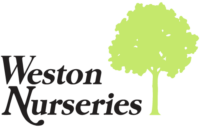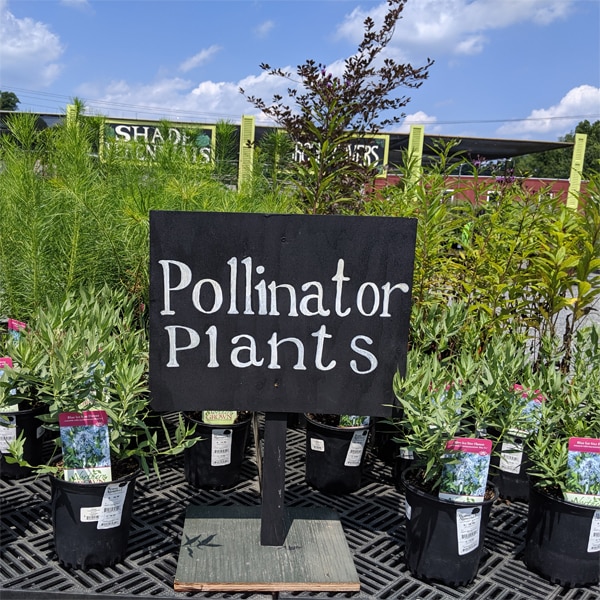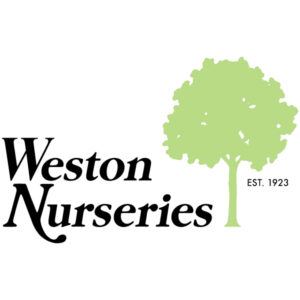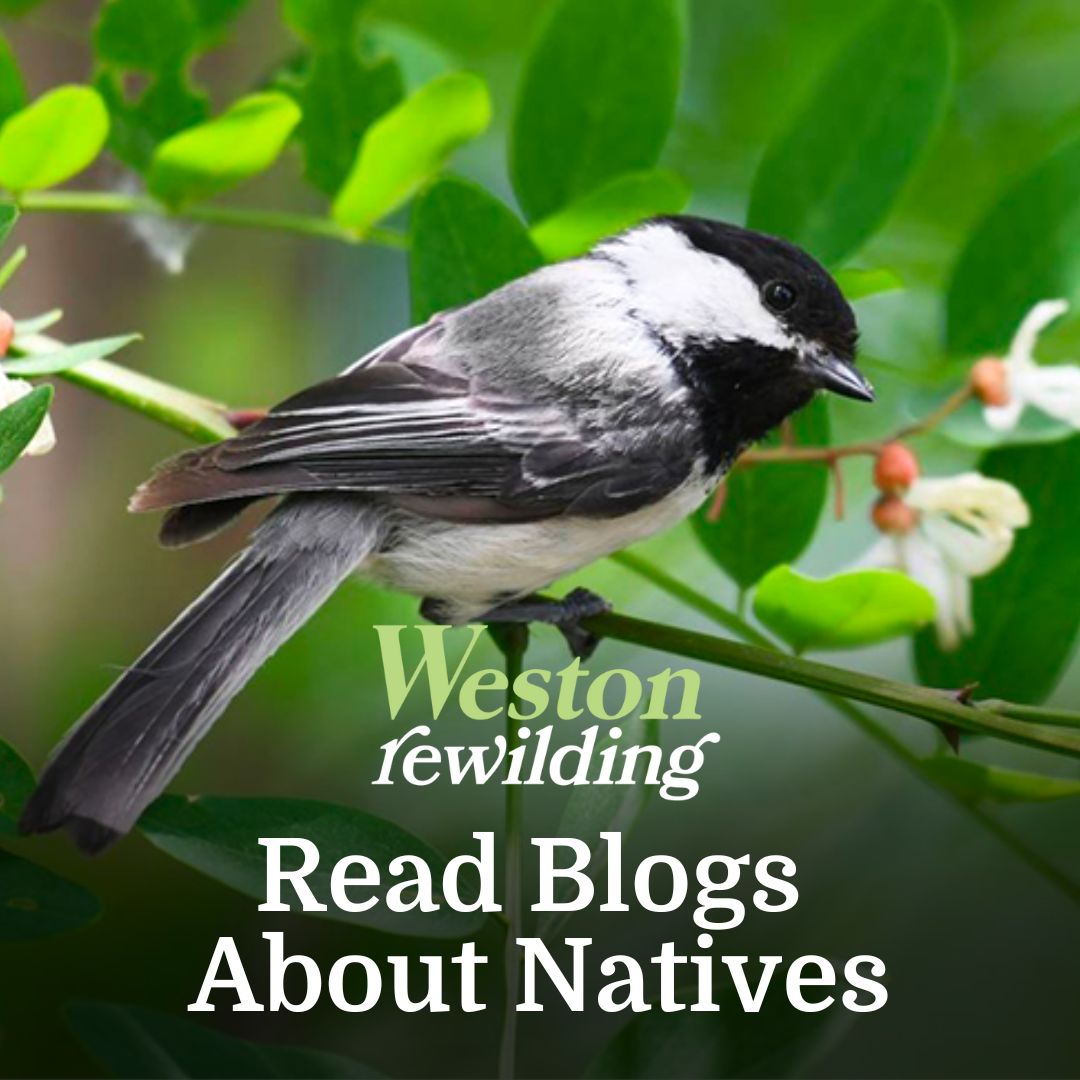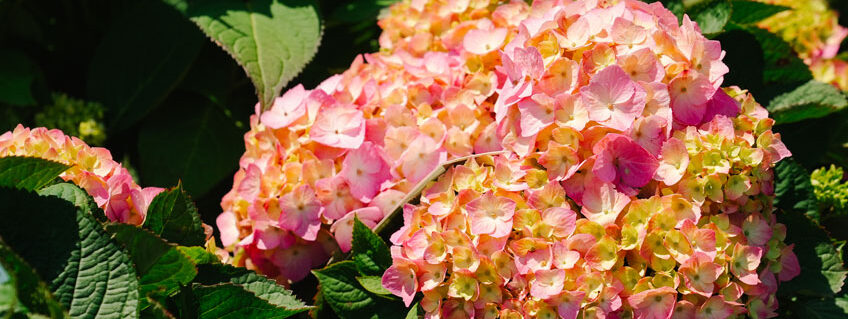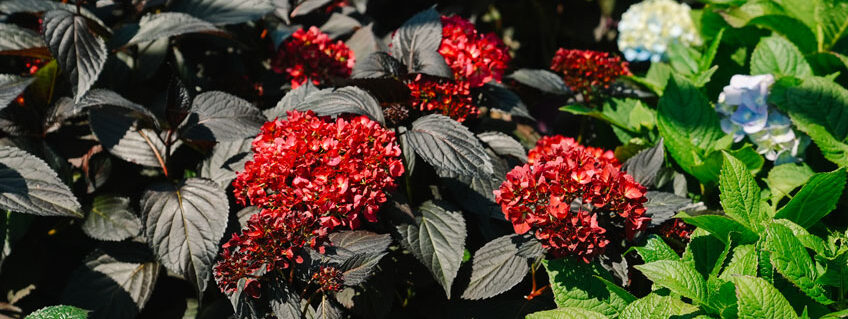Ten Ways to Be A Sustainable Gardener
- Composting has the greatest sustainable impact by allowing you to reduce your waste and reuse it for your garden’s benefit! Gather organic food waste, animal manure, plant material into a composting bin—or even in a sunny space in your yard—and you can create a natural, organic mixture for your sustainable gardening journey. Get in touch with local farms, fishermen, or even zoos for animal manure you can use in your compost. If you don’t have space or time for a large composting area, you can start small with a kitchen composter for food waste or come grab some of Weston’s Best Compost!
- Native plants are meant to thrive in our natural conditions! Not only do they require less water and fertilizer, they also attract pollinators and are less susceptible to pests and diseases. Plants such as Echinacea, Coreopsis, and Phlox will add color and beauty while contributing to a healthy ecosystem. Many native plants are also very attractive to pollinators! Planting these will provide a habitat for wildlife that will buzz and flutter around your garden all season long.
- Conserving water resources is a great way to be more sustainable in your gardening. Being smart about your watering can benefit the earth, your plants, and your water bill! Why let rainwater go to waste? By using a rain barrel or creating a rain garden, you can get the most of nature’s resources. A drip irrigation system can also help preserve priceless resources by slowly dripping water down to the roots of your plants. Drought-resistant plants, such as Baptisia, Coneflower, and Salvia, will also keep your water usage low during those dry times of the season.
- Fresh vegetables are a summer staple! Buying local or growing your own veggies is both tasty and sustainable. By limiting the amount of gas used to transport produce, you can be an eco-friendly consumer. Shopping at farmers markets, buying a CSA (community-supported agriculture) share, and growing your own crops are great ways to promote farm-to-table products. Don’t stop there! Spread the joy by sharing your crops with neighbors, friends, your local food pantry, and assisted living communities.
- Reducing your gardening space and not mowing your lawn are two steps on the way to sustainable gardening. Letting your lawn grow can promote beneficial insects which are great for warding off harmful insects. Instead, plant a garden with native plants, groundcovers, or ornamental grasses. If you want to keep your lawn, try using organic fertilizers and electric- or manual-powered mowers to cut down on gas. Container and urban gardening are great ways to appreciate the beauty of plants in smaller space—whether it’s with houseplants, tropical plants, or herbs and vegetables!
- Mulching is a necessity for a sustainable garden. Pick up some mulch from your local garden center or collect scrap woodchips to cover your garden beds. Some of the benefits include weed control and water preserving. To get rid of the pesky weeds before you mulch, use natural and organic herbicides, or even test out some homemade weed-killer recipes!
- Natural predators can be useful in avoiding the use of chemicals. Ladybugs and preying mantids are great for natural disease and pest control while supporting beneficial insects. The University of California Agriculture and Natural resources has created an Integrated Pest Management program. According to their website, “IPM is an ecosystem-based strategy that focuses on long-term prevention of pests or their damage through a combination of techniques such as biological control, habitat manipulation, modification of cultural practices, and use of resistant varieties.” Overall, the program is designed to help identify if pests are potentially harmful and if further action is needed.
- If you’ve always wanted to start your own farm but never had a good enough reason to, here’s your sign! Integrating livestock into your gardening can establish a mutually beneficial ecosystem. Livestock such as hens and cows can cut your grass for you while also providing you with perfect compost material. Hens will also help till your soil while removing weed seeds and supplementing your garden with fertilizer.
- Many people have half-empty seed packets after starting their first seeds in the spring. Instead of throwing them out or letting them go to waste, find other ways to use your seeds! You could plant leftover vegetable or herb seeds in a container for a windowsill or patio garden. Some seeds you can even save for a second planting later in the season! If you’re looking for more ways to spread the gardening bug, exchange your open seed packets with your neighbors’—chances are they’ll have some too!
- Sustainability is the awareness that we are sharing this earth with many other people, both now and in the future. What a better way to celebrate this than joining a community garden? Community gardens are great to share the love of plants among coworkers and organizations. They’re also great if you live in an apartment or condo and don’t have a yard of your own. Many cities have community gardens that are waiting for care and cultivation, so take the opportunity to start your own flower or vegetable garden!
Sustainability, at its core, is about inspiring others. By enacting these steps, you can promote a sustainable ecosystem while encouraging others to do the same. Share your love for sustainable gardening in your local garden club or in a Facebook page. You’ll be able to spread your green genius and learn from others!
Blogpost by Meghan Connolly

